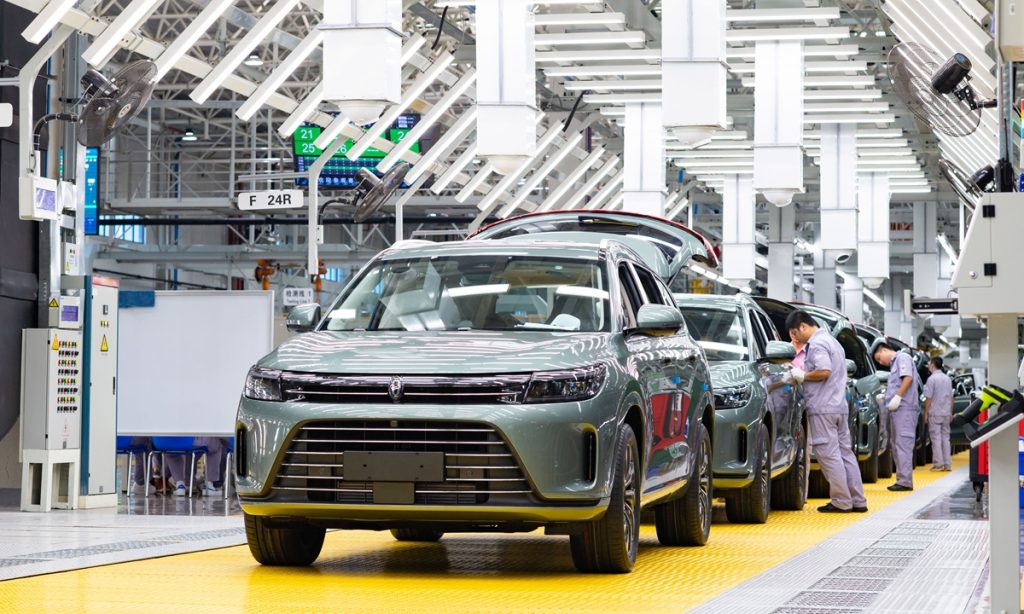Hungary opposes EU's levying tariffs on Chinese EVs, for it provokes trade frictions

Hungary on Wednesday voiced its opposition against the EU's decision to impose extra tariffs on China-made electric vehicles (EVs), as European officials and businesspeople continued to express their dissatisfaction of the EU actions.
Chinese experts noted that the fresh statement by Hungarian government indicated that divisive voices grow within the bloc, which urge the EU to return to a multilateral approach that promotes free trade and cooperation, rather than provoking trade frictions with China.
According to a report by Hungarian state news wire MTI, Hungary submitted an 11-point package of recommendations on accelerating the switch to EVs to the EU's Competitiveness Council on Wednesday, calling for coordination at the European level to support EVs.
Addressing the EU's imposing extra tariffs on Chinese EVs, Hungary's National Economy Minister, Márton Nagy, said that Budapest didn't support protectionist measures and warned that the tariffs could lead to the outbreak of a trade war "which wouldn't be good for either side."
Nagy's statement came after Hungary's Prime Minister Viktor Orban just wrapped up his trip to China, during which he said that Hungary advocates strengthening cooperation with China and opposes forming exclusionary cliques and engaging in bloc confrontation.
"Now many Chinese car companies like BYD and some battery manufacturers plan to invest and build factories in Hungary, but if the EU restricts Chinese products, these Chinese carmakers may stop their plans to build factories in Hungary, which will lead to a number of losses to Hungary," Zhang Xiang, secretary general of the International Intelligent Vehicle Engineering Association, told the Global Times on Thursday.
Hungary is not alone to oppose the EU tariffs. BMW Group Chairman Oliver Zipse was quoted in a statement as saying that the EU's approach is impractical and potentially damaging to European car manufacturers engaged in global operations.
"The introduction of additional import duties leads to a dead end. It does not strengthen the competitiveness of European manufacturers. On the contrary, it not only harms the business model of globally active companies, but also limits the supply of electric cars to European customers and can therefore even slow down decarbonization in the transport sector. Such measures heavily infringe on the principle of free trade, which is also propagated by the EU," said Zipse in a note sent to the Global Times earlier.
Meanwhile, German Minister for Digital and Transport Volker Wissing called the tariff increase a "destructive" move, urging the EU to prioritize fair competition rules over tariffs. Hildegard Mueller, president of the German Association of the Automotive Industry, called for constructive dialogue between Europe and China to find mutually beneficial solutions, Xinhua reported.
Zhang noted that the EU has a mandate to save energy and reduce carbon emissions, so once it boycotts the Chinese production of new-energy vehicles, European consumers will have to spend more money, which undoubtedly raises the cost of the bloc's green transition.
"The European side should realize that responding to the US call to sanction Chinese EVs won't do itself any good, casting cloud over bilateral relations," Zhang said, urging the bloc to respond to the needs of the broad business community, give up levying high tariffs on Chinese EVs and strengthen cooperation with Chinese auto companies.